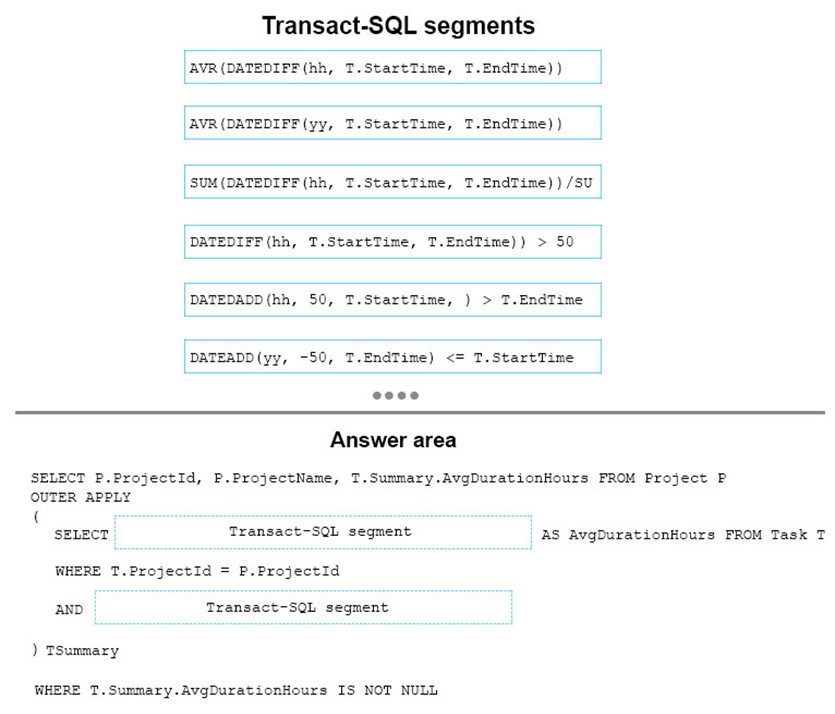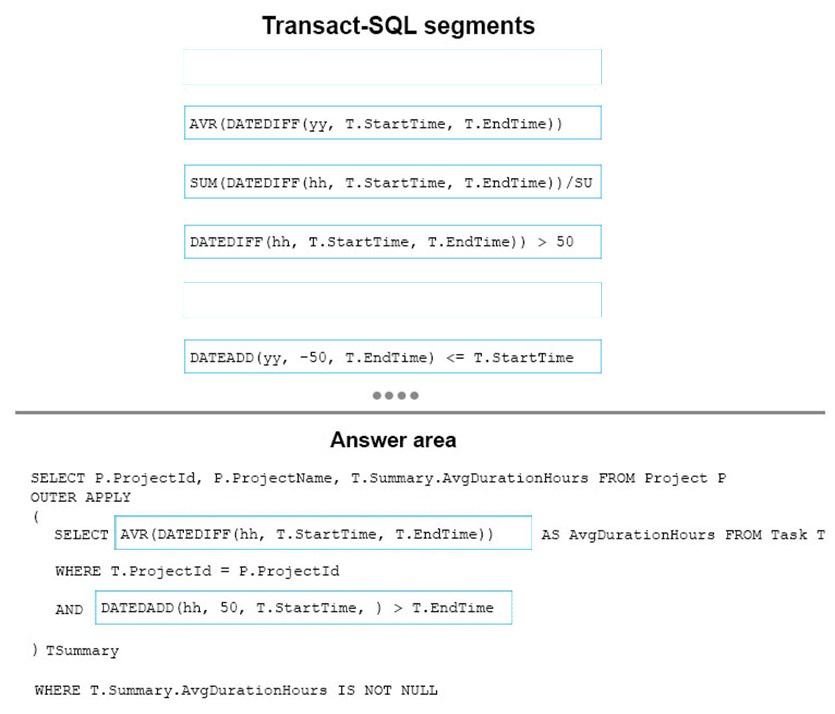

DRAG DROP -
Note: This question is part of a series of questions that use the same scenario. For your convenience, the scenario is repeated in each question. Each question presents a different goal and answer choices, but the text of the scenario is exactly the same in each question in this series.
You query a database that includes two tables: Project and Task. The Project table includes the following columns:
The Task table includes the following columns:
You need to find all projects that have at least one task that took more than 50 hours to complete. You must also determine the average duration of the tasks that took more that took more than 50 hours to complete for each project.
How should you complete the Transact-SQL statement? To answer, drag the appropriate Transact-SQL segments to the correct locations. Each Transact-SQL segment may be used once, more than once or not at all. You may need to drag the split bar between panes or scroll to view content.
Select and Place:

M4x
Highly Voted 5 years, 9 months agoBartek
5 years, 9 months agomelvin9900
4 years, 11 months agojonasdv
4 years, 8 months agomattia_88
5 years, 8 months agomattia_88
5 years, 8 months agoAnette
5 years, 1 month agoitdoesntmatter
Highly Voted 5 years, 9 months agoBobSnijders
5 years, 2 months agoAnette
5 years, 1 month agoAndy7622
Most Recent 4 years, 6 months agoeduardogtc
4 years, 9 months agovermeilyn
5 years, 1 month agovermeilyn
5 years, 1 month agoprakash101179
5 years, 9 months agoAnsB
5 years, 4 months agoHoey
5 years, 3 months agoBobSnijders
5 years, 2 months ago